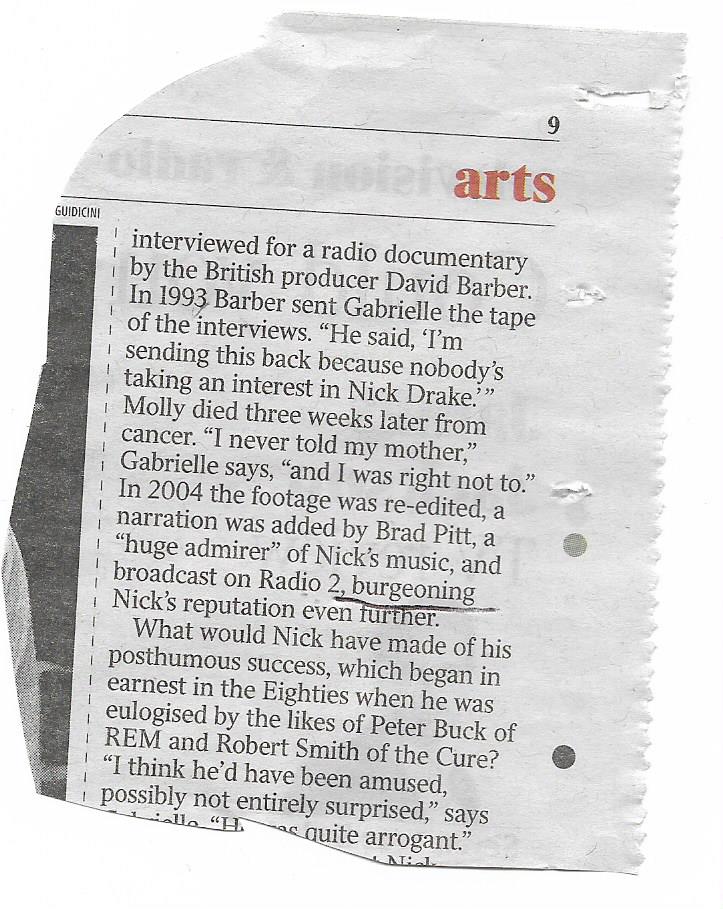 The Times, March 7, 2018
The Times, March 7, 2018
‘To burgeon’ is an intransitive verb (like ‘to sneeze’ or ‘to arrive’), so it does not take an object. You can’t ‘burgeon’ a reputation. I think the word sought for here may have been ‘burnish’.
 The Times, March 7, 2018
The Times, March 7, 2018
‘To burgeon’ is an intransitive verb (like ‘to sneeze’ or ‘to arrive’), so it does not take an object. You can’t ‘burgeon’ a reputation. I think the word sought for here may have been ‘burnish’.
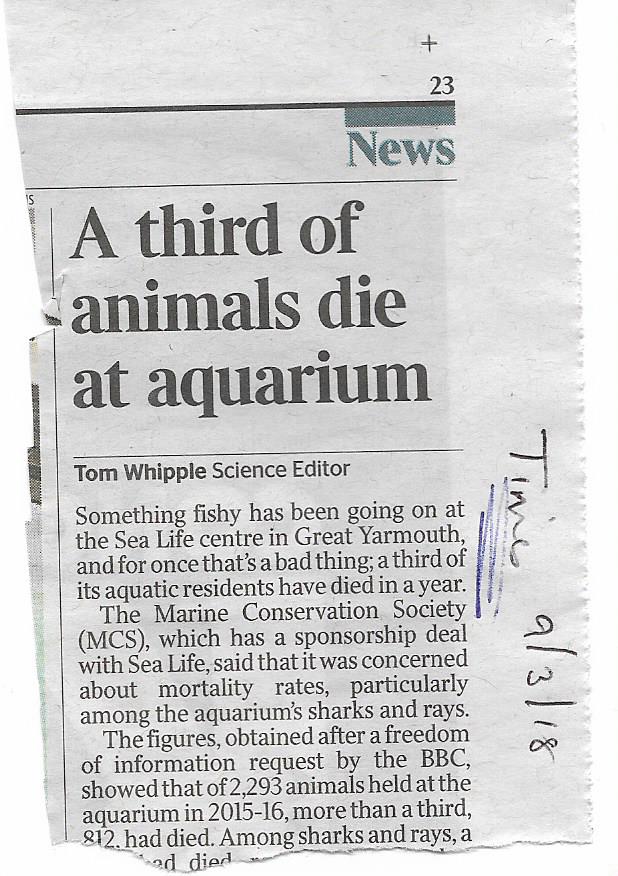 The Times, March 9, 2018
The Times, March 9, 2018
Is it funny that creatures are dying? Not to me. This is a good example of someone misguided who cannot resist trying to be smart no matter how inappropriate.
This is the way to do it:
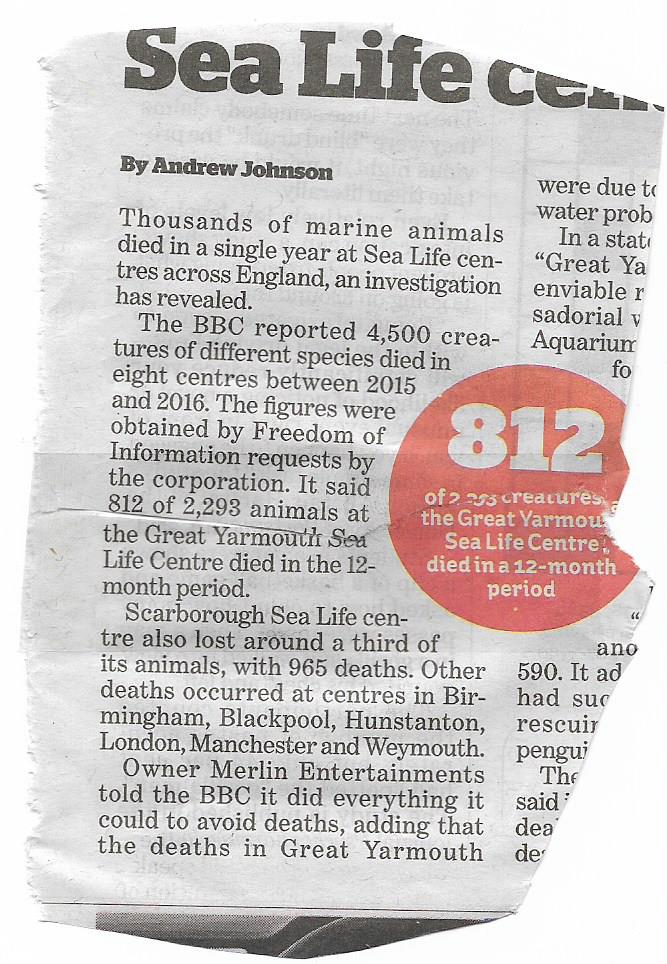 i newspaper, March 9, 2018
i newspaper, March 9, 2018
Tens of thousands of homes in the UK are still without water after a thaw following recent freezing temperatures resulted in burst water mains and severely damaged pipes.
The Guardian Online, March 6, 2018
Every schoolboy used to know that it is the expansion of water as it freezes that bursts pipes, not the ensuing thaw. I don’t know if this is ignorance or carelessness but either way it is shameful.
Football Association chief Martin Glenn has apologised “for any offence” after comparing the Star of David with symbols such as the Nazi swastika.
BBC News Online, March 5, 2018
‘Compare with’ and ‘compare to’ are routinely confused, but they are different. To ‘compare with’ is to examine the relative values of two or more similar things, as in ‘The number of oranges sold last year rose by 50 per cent compared with 2016.’ It includes the idea of difference. To ‘compare to’ means to liken, as in ‘Shall I compare thee to a summer’s day?’ It includes the idea of being the same. In this case, the FA chief was bracketing the Star of David with the swastika, or likening the two symbols, so the phrase wanted is ‘compare to’.
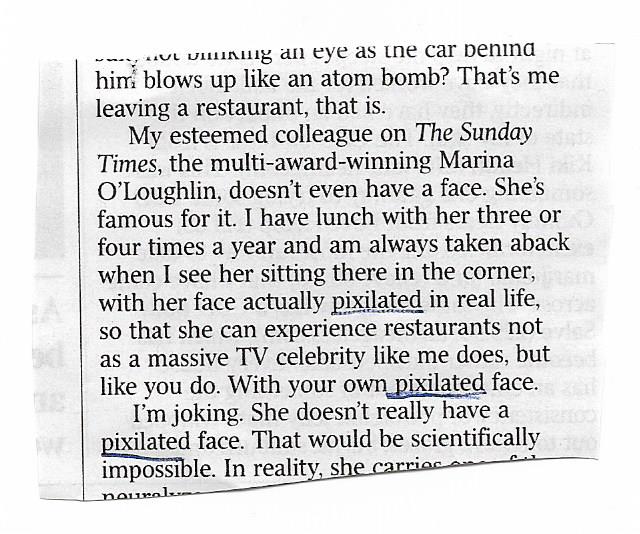
Giles Coren, The Times, March 4, 2018
Regular readers will know that Giles Coren is the only writer on earth who is too clever to need subs, and that’s why it is such fun finding obvious errors in his copy so often. The correct spelling is ‘pixelated’ – quite simple, really, considering that it means ‘broken down into pixels’.
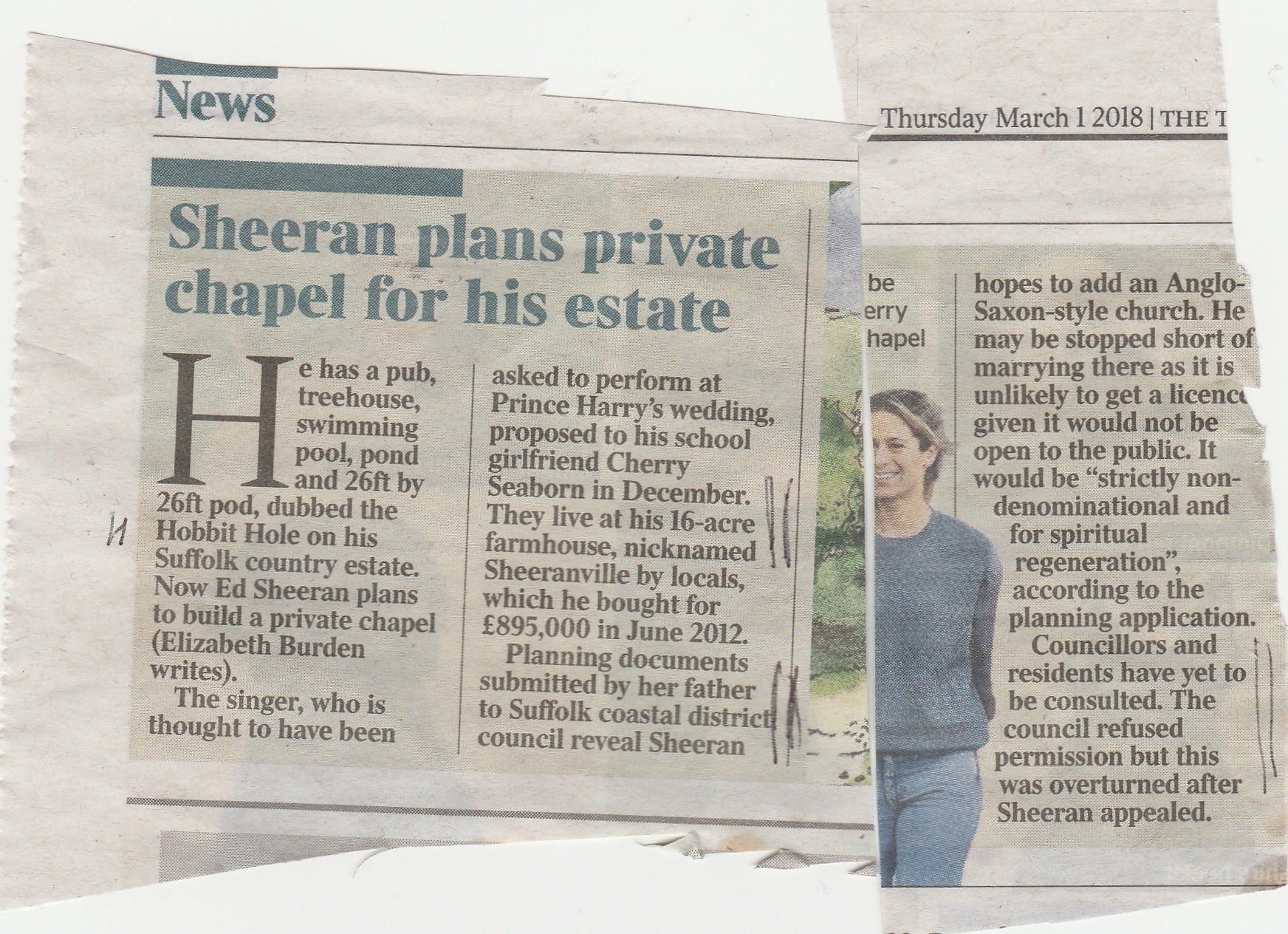 The Times, March 1, 2018
The Times, March 1, 2018
Surely there can’t be any satisfaction in doing such a poor job as this.
Going through my marks in order, what is ‘a 26ft by 26ft pod’? There should be a comma after ‘Hobbit Hole’.
A 16-acre farmhouse would be a sight to behold.
Q: Why would the fiancee’s father submit the planning application? A: Because he is the scheme’s architect.
It is Suffolk Coastal district council, not ‘coastal’.
What on earth is the last par about? It turns out that this application has not yet been considered, but that Sheeran was refused permission for a garage in 2016. It was granted on appeal.
Lastly, it has been reported many times that the property is near Framlingham. I don’t see mentioning this as an invasion of privacy.
 The Times, March 2, 2018
The Times, March 2, 2018
Sometimes an intro cries out to be re-written. In vain.
This is unbelievably clumsy: ‘with whose manager the 21-year-old held talks yesterday’. Not to mention ‘chose’ instead of ‘choose’.
As always there are hundreds of ways of writing this in a snappy and cogent manner – words which must be a mystery to many Times sports subs.
What’s wrong with:
Scott McTominay, the promising young Manchester United midfielder, is at the centre of a battle between Scotland and England managers.
The 21-year-old held talks yesterday with Alex McLeish, who hopes to secure his allegiance, and will today meet Gareth Southgate etc etc.
 Bexleyheath and Eltham News Shopper, February 23, 2018
Bexleyheath and Eltham News Shopper, February 23, 2018
You generally put quotes in a heading to indicate that the content is an allegation or claim in an attempt to deflect a lawsuit or having to put in apology. (Beware: it does not always work). For example:
Gas installer
‘was negligent’
Obviously an inanimate object such as a thermostat can’t sue so quotes are unnecessary. You don’t need to put them round ‘harmless’ either.
In the intro, it would have been good to put suspicious rather than suspicions (without quotes). Still, it’s near enough, so who cares?